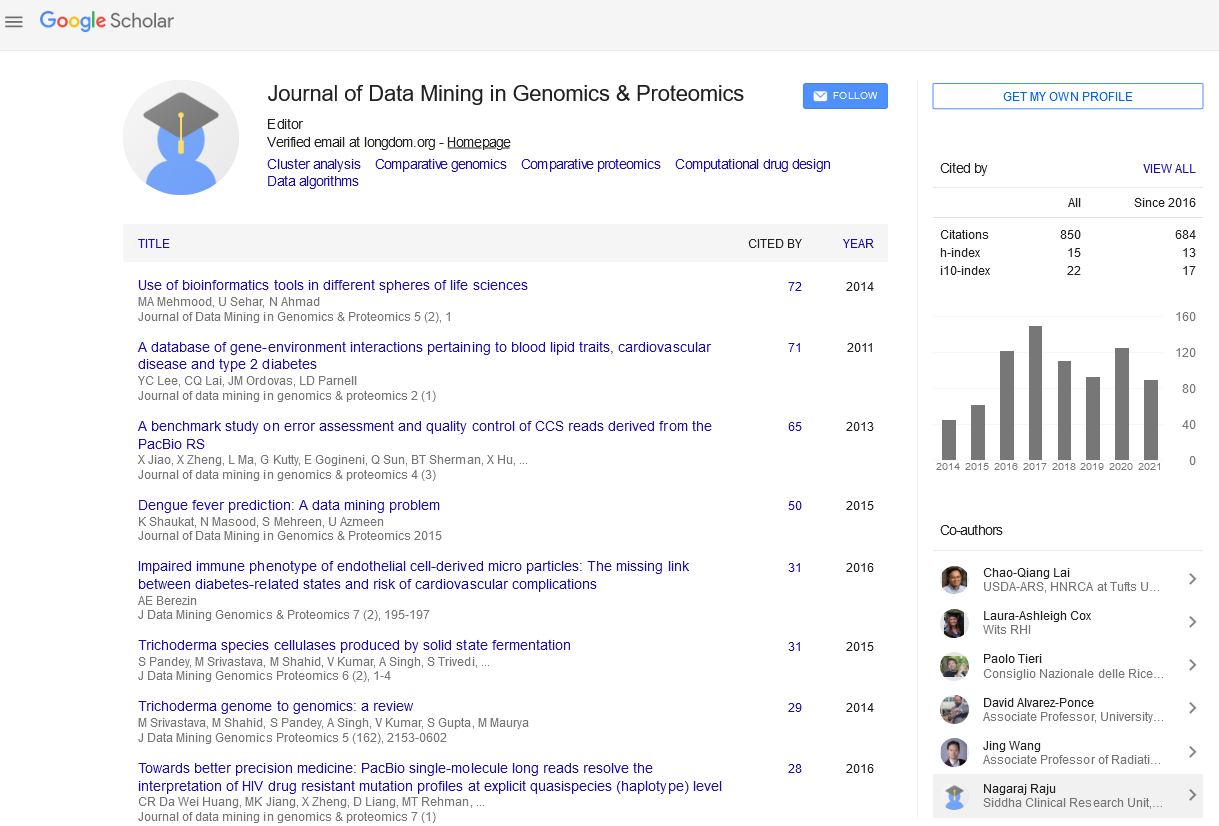PMC/PubMed Indexed Articles
Indexed In
- Academic Journals Database
- Open J Gate
- Genamics JournalSeek
- JournalTOCs
- ResearchBible
- Ulrich's Periodicals Directory
- Electronic Journals Library
- RefSeek
- Hamdard University
- EBSCO A-Z
- OCLC- WorldCat
- Scholarsteer
- SWB online catalog
- Virtual Library of Biology (vifabio)
- Publons
- MIAR
- Geneva Foundation for Medical Education and Research
- Euro Pub
- Google Scholar
Useful Links
Share This Page
Journal Flyer

Open Access Journals
- Agri and Aquaculture
- Biochemistry
- Bioinformatics & Systems Biology
- Business & Management
- Chemistry
- Clinical Sciences
- Engineering
- Food & Nutrition
- General Science
- Genetics & Molecular Biology
- Immunology & Microbiology
- Medical Sciences
- Neuroscience & Psychology
- Nursing & Health Care
- Pharmaceutical Sciences
Receptor tyrosine kinases fall into distinct classes based on their inferred signaling networks
2nd International Conference on Big Data Analysis and Data Mining
November 30-December 01, 2015 San Antonio, USA
Alejandro Wolf-Yadlin
University of Washington, USA
Posters-Accepted Abstracts: J Data Mining Genomics Proteomics
Abstract:
Receptor tyrosine kinases (RTKs) activate shared signaling networks but can often elicit different phenotypic responses, even in the same cellular background. To uncover intrinsic commonalities and distinctions in the signaling capacity of RTKs, we measured network-wide time-dependent signaling in six isogenic cell lines, each expressing a different RTK, as signaling nodes were systematically perturbed by RNA interference. Network models were inferred from the resulting data for each RTK, revealing a conserved set of signaling pathways common to all six RTKs, along with RTK-specific features that grouped them into three distinct classes: EGFR/FGFR1/c-Met, IGF-1R/NTRK2, and PDGFRβ. To investigate whether these observed differences in network topologies across RTK classes reflect differences in receptor co-expression and drug sensitivity, we analyzed publicly available data across nearly 1,000 cancer cell lines from the Cancer Cell Line Encyclopedia. This revealed mRNA co-expression of many RTKs, including enrichment of the EGFR/FGFR1/c-Met class in glioma, melanoma, and carcinoma cell lines. Importantly, RTK class gene expression correlated with response to EGFR, FGFR1, c-Met, and IGF-1R inhibitors. Collectively, these results suggest that resistance to RTK-targeted therapies may emerge in part because other RTKs within the same class can phenocopy the targeted receptor�??s network activity state.
Biography :
Alejandro Wolf-Yadlin obtained his Ph.D. from the Massachusetts Institute of Technology Bioengineering Division and completed his postdoctoral training at Harvard University Chemistry Department. He is an assistant professor at the University of Washington, Department of Genome Sciences. He has published more than 10 papers in reputed journals and serves as reviewer for many others. He works on the development and application of new high throughput proteomic tools for the study of cellular signaling networks. He lectures yearly at Cold Spring Harbor Laboratory Proteomics Course and is a member of the study panel for the Russian Federation’s Skolkovo Institute of Technology.


